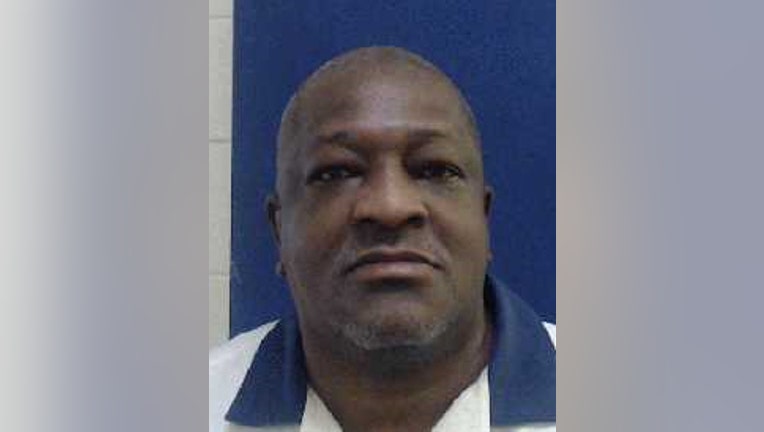Georgia prepares to resume executions after COVID pause, legal agreement

Willie Pye (Georgia Department of Corrections)
JACKSON, Ga. - An execution scheduled for next week would be the first in Georgia in more than four years. The state is trying to move past an agreement made amid the coronavirus pandemic that effectively halted lethal injections.
Willie James Pye, 59, is set to be put to death March 20. He was convicted of murder and other crimes in the November 1993 killing of his former girlfriend, Alicia Lynn Yarbrough.
Georgia last carried out an execution in January 2020. In April 2021, the state attorney general’s office entered into an agreement with attorneys for death row prisoners to suspend executions for a certain group of prisoners and to establish conditions under which they could resume.
Here’s a look at why it’s been more than four years since Georgia has carried out an execution.
Georgia's history of executions
After the U.S. Supreme Court reinstated the death penalty in 1976, Georgia resumed executions in 1983. The four-year break in executions caused by the coronavirus pandemic and related agreement was the longest pause since then. From 2010 to 2020, the state executed 30 people, including nine in 2016 and five in 2015.
Unlike some other states, Georgia hasn’t had problems obtaining the drug it uses for lethal injections. Prison officials have said they get the sedative pentobarbital from a compounding pharmacy whose identity is shielded by state law.
Executions paused during COVID pandemic
Executions in Georgia stopped in 2020 because of the coronavirus pandemic. But court proceedings continued, meaning people on death row continued to become eligible for execution as they exhausted their appeals.
In early 2021, a committee of a judicial task force on COVID instructed lawyers for death row prisoners and the state attorney general’s office to determine terms under which executions could resume. After negotiations, they entered into the agreement in April 2021.
Georgia's conditions for executions
Executions would not restart until six months after three conditions had been met, according to the agreement: the expiration of the state’s COVID-19 judicial emergency, the resumption of normal visitation at state prisons and the availability of a COVID vaccine "to all members of the public." It also set minimum intervals for the spacing of executions once they resumed.
The agreement applied to death-sentenced prisoners whose requests to have their appeals reheard were denied by the 11th U.S. Circuit Court of Appeals while the judicial emergency was in place. The agreement was to remain in effect through Aug. 1, 2022, or one year from the date on which the conditions were met — whichever was later.
Executions kept on hold
State officials obtained an execution order in April 2022 for Virgil Delano Presnell Jr., setting his execution for May 17, 2022. But Presnell’s lawyers with the Federal Defender Program sued, saying the state had violated the agreement. The judicial emergency had expired in June 2021, but they argued the other conditions remained unmet.
A Fulton County Superior Court judge halted the execution less than 24 hours before it was to take place. The state Supreme Court did not immediately rule on the state’s appeal, so the stay order remained in place until after the execution window expired.
The Georgia Supreme Court ruled in December 2022 that the agreement was a binding contract. In a concurring opinion, Justice Charlie Bethel wrote that "everyone should be able to count on the state to honor its word."
The case returned to the lower court, and the two sides tried to reach a settlement. Lawyers for the state on Feb. 27 informed the lawyers for death row prisoners that further settlement negotiations were not worthwhile, a court filing by Pye’s lawyers says.
Is Pye covered by the state's agreement?
On Feb. 28, the day before the state obtained an execution order for Pye, his lawyers filed a motion for him to join the litigation over the agreement. They argued that the visitation and COVID vaccine requirements in the agreement were not yet fulfilled.
"We are beyond shocked and outraged by the fact that, in the midst of settlement discussions, the Attorney General’s office was simultaneously acting to pursue the execution of Willie Pye, one of our clients included in those talks, and doing so without informing us or the Court," said Nathan Potek, who represents death row prisoners for the Federal Defender Program.

